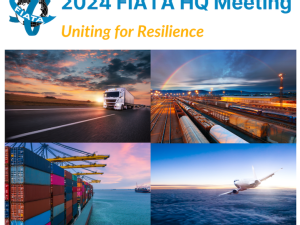SEKO, a global provider of supply chain solutions, says today's complex global business environment can make the outsourced 3PL decision-making process an exercise fraught with pitfalls if not conducted carefully and correctly.
'In a world gone global, with rapidly advancing technologies, emerging world markets and vastly extended supply chains, decision-making demands on logistics professionals are more critical than ever,' says John Fitzgerald, vice president of global sales & marketing for SEKO. 'Unlike a few years ago, a broad range of overall global logistical requirements must be considered today if shippers are to make knowledgeable supply chain management decisions in selecting the right global partner.'
Shippers must keep in mind that price alone is not the only measurement to consider when selecting a global third party logistics provider. 'Logistics managers should carefully weigh, analyze and consider all vital essentials of global supply chain strategy before partnering with a global 3PL,' he says. 'The biggest challenge shippers face today is controlling international supply chain visibility, lead times and total landed costs ' including inventory carrying costs, obsolescence cost and customer service. This means that Cultural Alignment plays a major role in determining which third party logistics provider is best suited to meeting its company's specific and unique global distribution needs. Every shipper should ensure that their 3PL shares the same values, such as ethics and accountability, and that they subscribe to and understand the specific nature of the partnership arrangement.'
With globalization and new technologies, Company Infrastructure is also critical. 'Both parties must have the physical resources and accessibility to shipment data to meet each other's needs,' he points out. 'Global supply chain solutions are all about personalized service. If the two partners do not share common capabilities and company resources, a 3PL will not be able to provide proper supply chain visibility and the shipper will not obtain the necessary capacity and services when delivery of goods is required.'
If both parties cannot communicate on the operating platforms they already have in place, whether EDI, XML or the Web, and be responsive to each other's changes in IT structure, it is likely the two parties will not be a good match. 'IT Capabilities, with real-time data sharing and timely responsiveness is crucial to providing a seamless supply chain. IT compatibility is essential for providing global logistics services such as shipment documentation, purchase order visibility, cross-docking support, and often advanced services such as forecasting, inventory replenishment and life cycle management,' says Fitzgerald.
A supply chain partnership will only be as good as the skills and cooperation its participants bring to it. 'Ease of Doing Business and Partnership Intangibles are extremely important if both partners will optimize the supply chain process,' he says. 'A global 3PL that is right for you will customize services to meet your specific supply chain needs; but it is essential that shippers work closely with their 3PL in sharing critical shipment & forecast information that will enhance visibility and help optimize the total value chain process.' Value-added customer service-related items can be further enhanced if both parties are able and willing to jointly invest in their common success. It is essential that each partner fully understand the meaning of 'global collaboration.'
'Cost is always important, as ultimately the success of any supply chain partnership relates back to customer satisfaction,' he says. 'This means that you and your 3PL partner must establish agreed upon benchmarks for success and frequently review the measurement data to ascertain if the global logistics process is performing well, or in need of improvement. Metrics should involve the measurement of on-time performan









